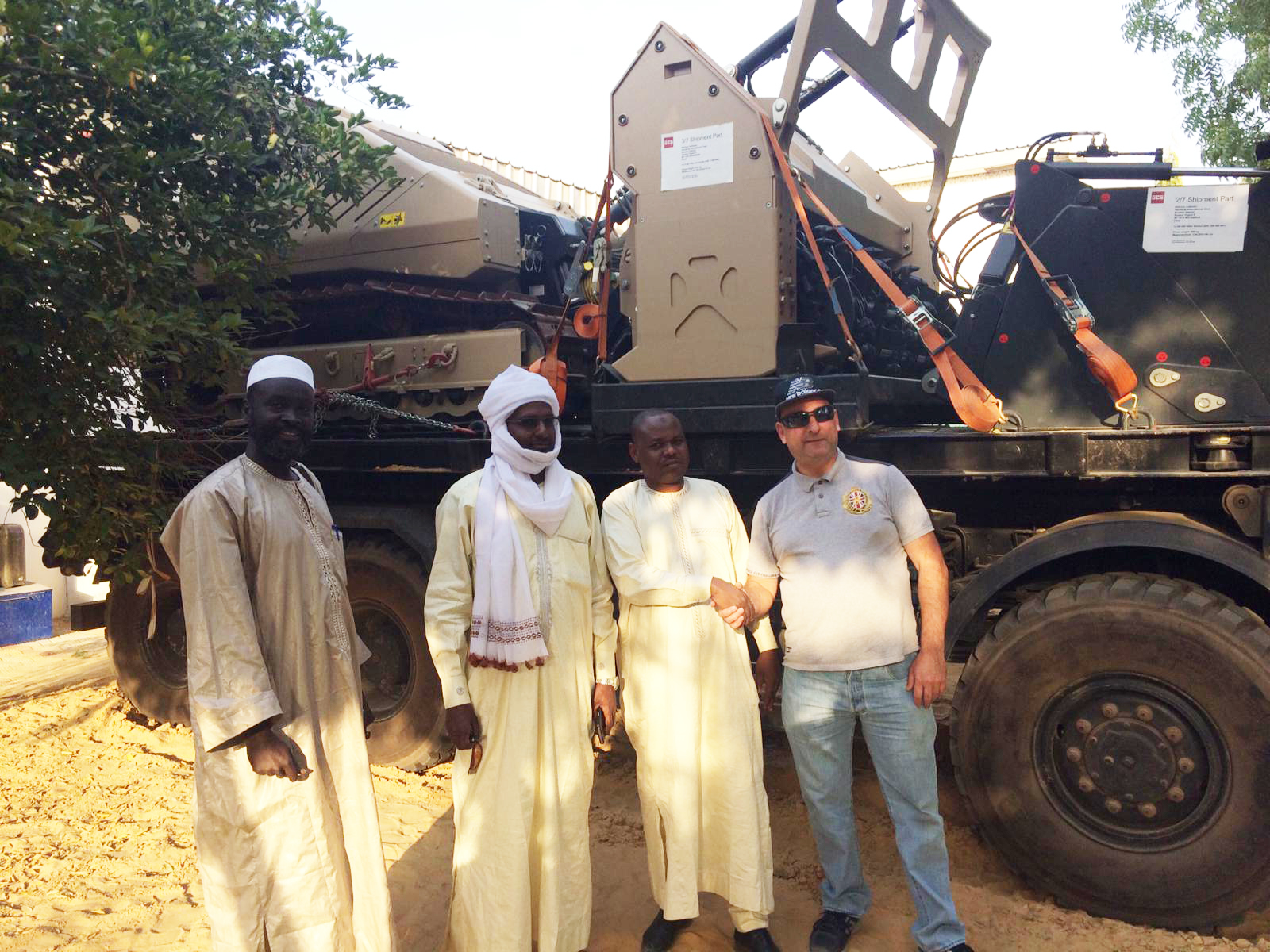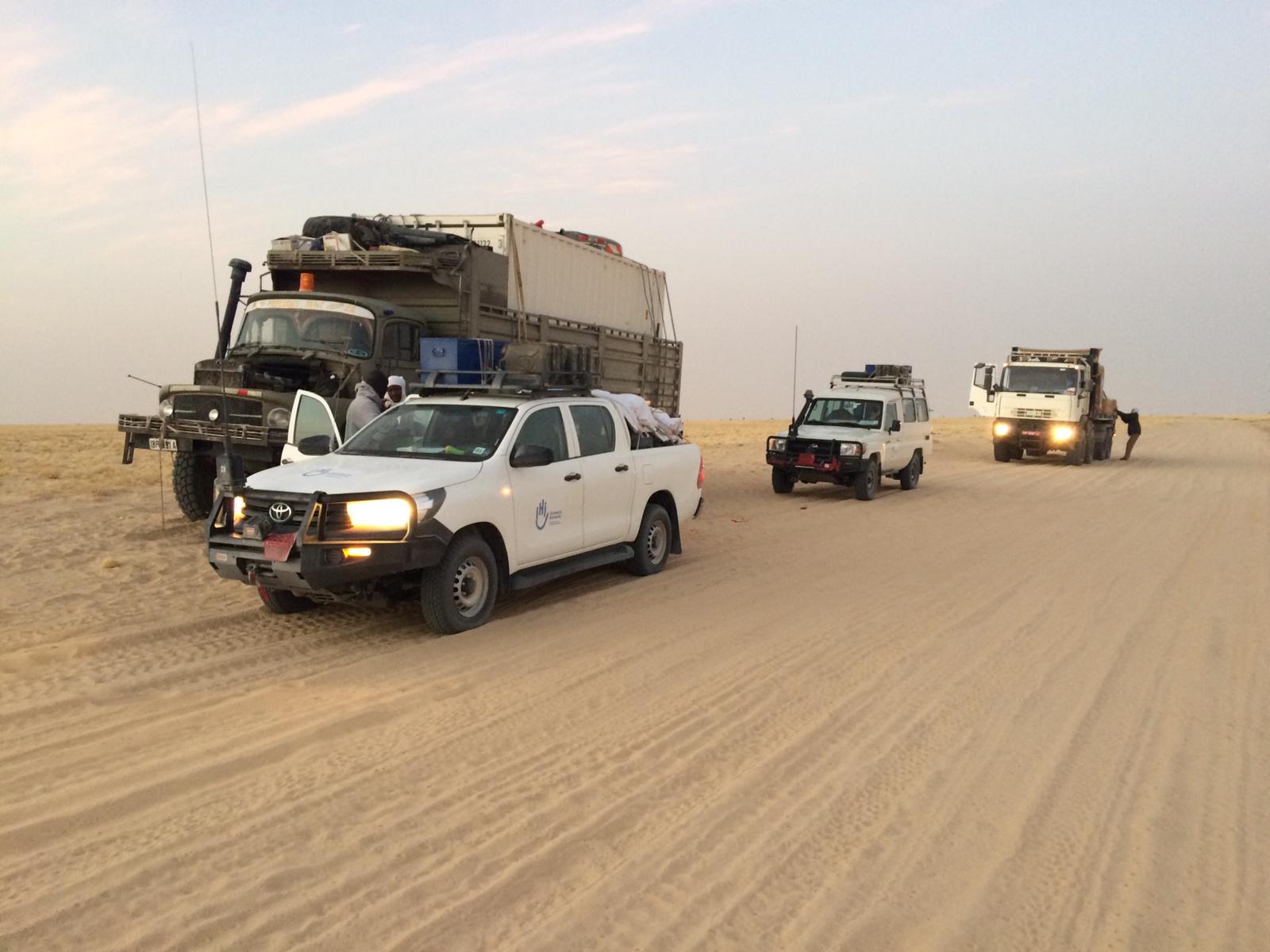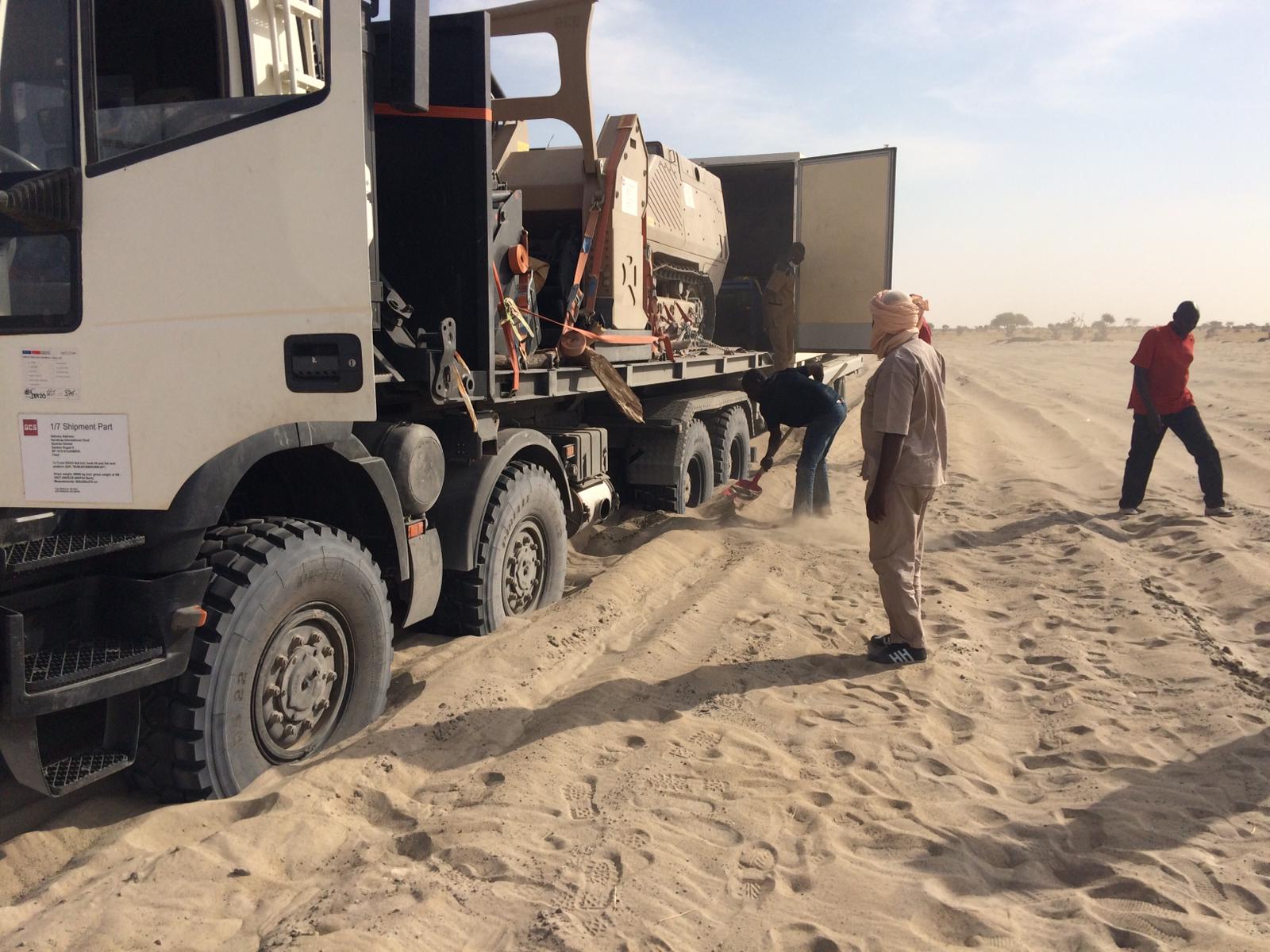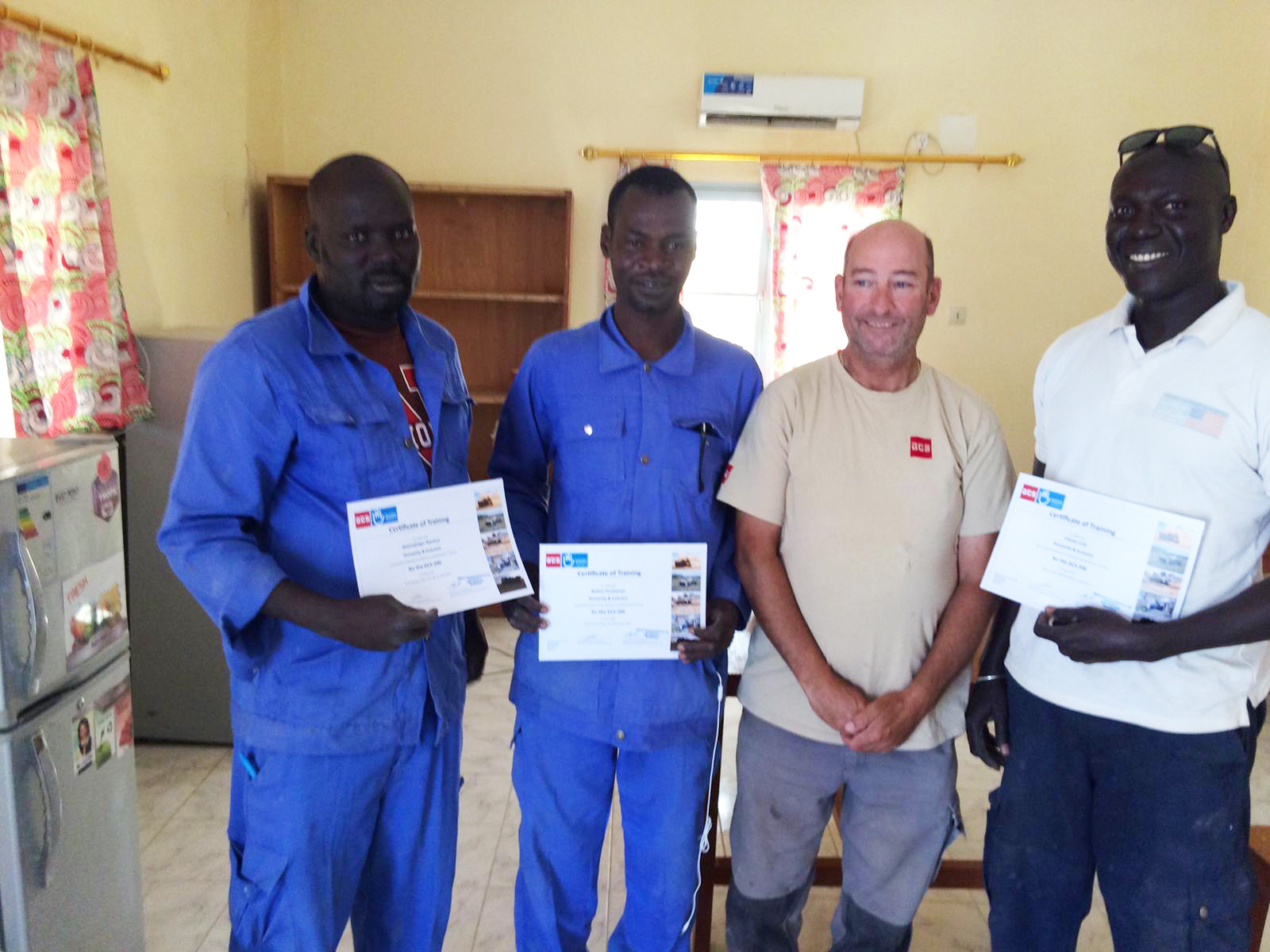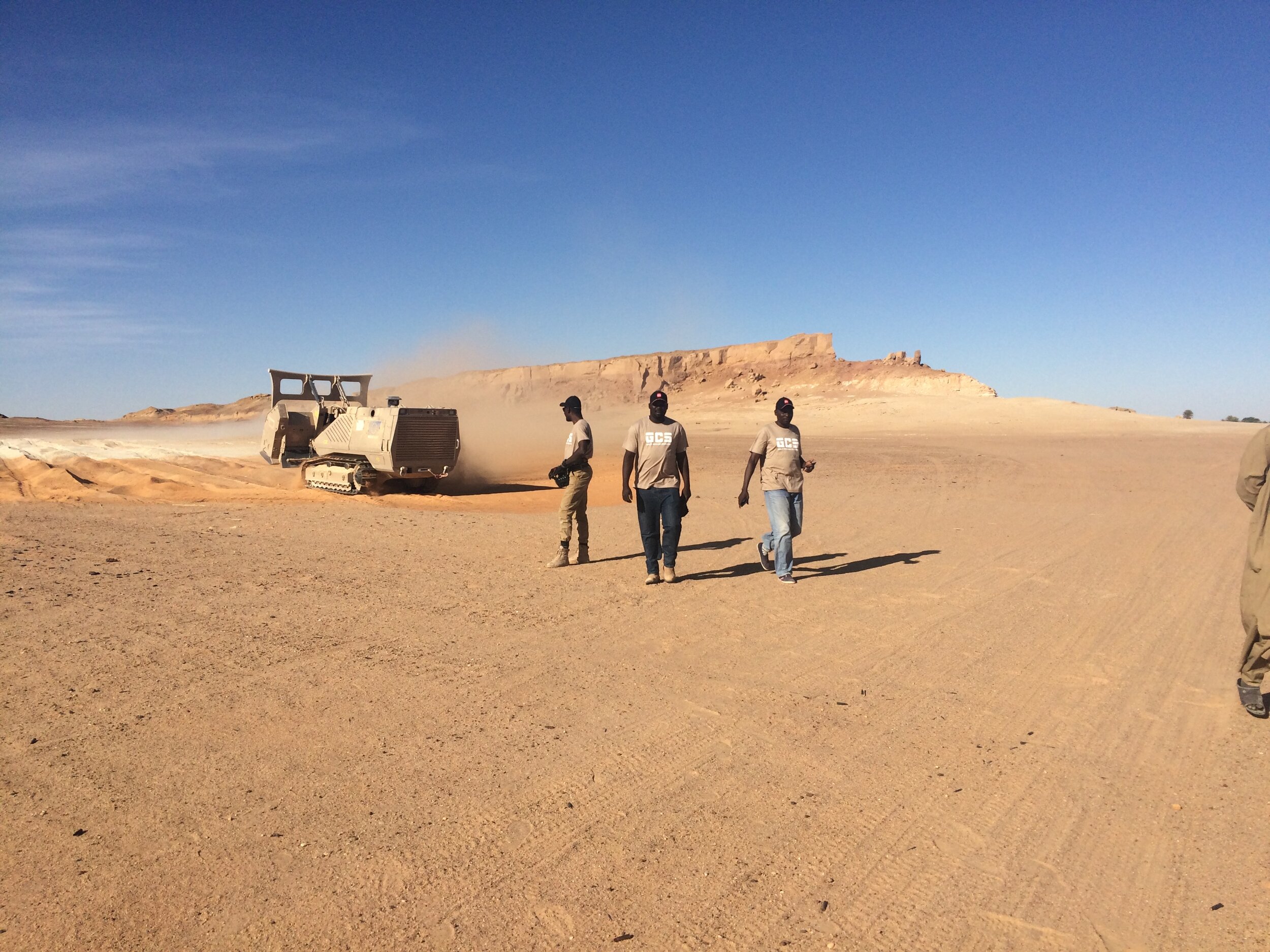GCS supporting humanity & inclusion in the heart of the Sahara desert
GCS-200 with the tiller attachment operating in Faya, northern Chad
Despite Chad’s recently acquired status as an oil-exporting state, most of the population of the semi-desert country continues to live in poverty. Chad has been plagued by a succession of conflicts from the 1960s up to the Libyan conflict of the 1980s, leaving behind a deadly legacy of landmine contamination and other explosive remnants of war (ERW). Ongoing clashes in the country, as well as in neighbouring countries demonstrate how non-state armed groups can exploit instabilities and pervious borders. The presence of great amounts of unsecured explosives increase the likelihood of their entering the black market, which further impacts the country's stability. Clearing contaminated areas remains one of the major challenges for Chad, both in terms of saving lives and advancing development. It is estimated that 300,000 people are living under the constant threat of anti-personnel and anti-vehicle mines. These often invisible, yet fatal enemies obstruct safe access to housing, roads, water points, and pastures. Their negative impact on the socio-economic development of the country is particularly severe in the regions of Borkou and Ennedi, which are also among the country’s poorest areas.
GCS commissioned by Humanity & Inclusion
In light of this situation, GCS was commissioned in 2018 by the international aid organisation Humanity & Inclusion (HI), formally known as Handicap International, to supply a mechanical landmine clearance solution for the EU-funded project "Support for mine clearance, development and the social protection of vulnerable people". This project is in consortium with the Mine Advisory Group (MAG), Le Secours Catholique et Développement (SECADEV) and the Fondation Suisse pour le Déminage (FSD) and aims to identify and clear areas affected by mines and explosive remnants of war, and to promote overall development in Borkou and Ennedi. HI specifically required a versatile, remote-operated system that can use several types of tool attachments and be easily implemented in the harsh environment of the deployment ground in Chad. The GCS-200 was selected as the best fit. This product is an unmanned multi-purpose EOD platform designed for heavy-duty clearance tasks with maximum survivability in high-threat environments.
GCS in action – training and clearance
GCS conducted 4-week training program for three local HI operators to learn how to operate and perform maintenance tasks on the equipment. In February 2019, in order to speed up the demining process on the 1.5 million square meters of land still estimated to be contaminated, the HI team began working with the GCS-200 remote controlled, tracked platform. The machine is highly robust and can be used under extreme conditions. "On very large, relatively flat and unplanted areas, for example in a desert, the mine clearing machine offers considerable support to the demining teams. We are currently working near Faya-Largeau under such conditions," explains Jason Mudingay Lufuluabo, head of HI's demining team in Chad. Up to now, HI’s team in Chad has cleared over 100,000 square meters by using the GCS-200 remote controlled machine.
GCS is also providing mentoring and service support to HI’s operators and mechanics during their daily operational activities which enables them to gain more confidence and proficiency in using and maintaining the equipment. This approach will facilitate maximum output of the equipment in Chad’s challenging environment. GCS intends to be present on the ground for at least a few more months to support HI with technical and operational know-how and support as the project progresses.
